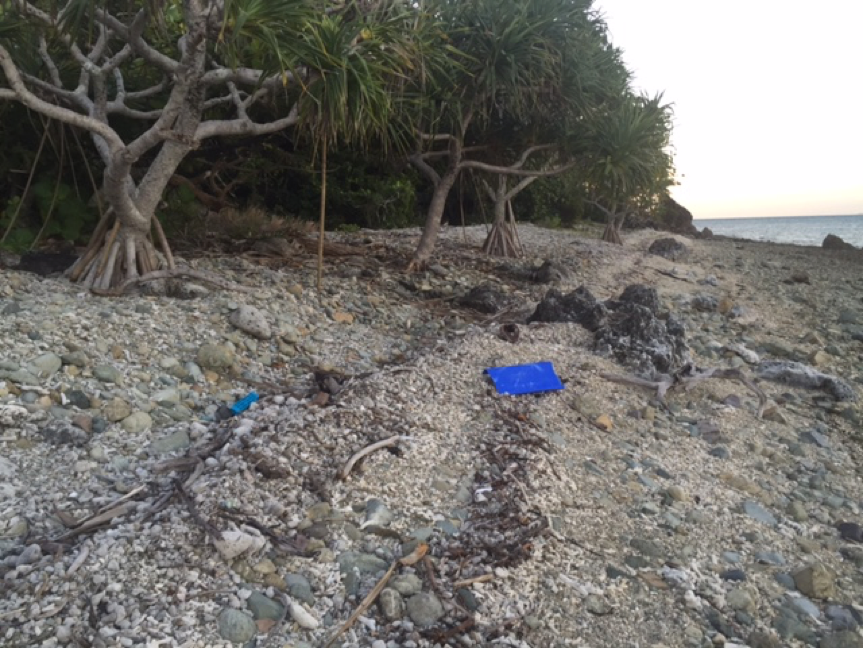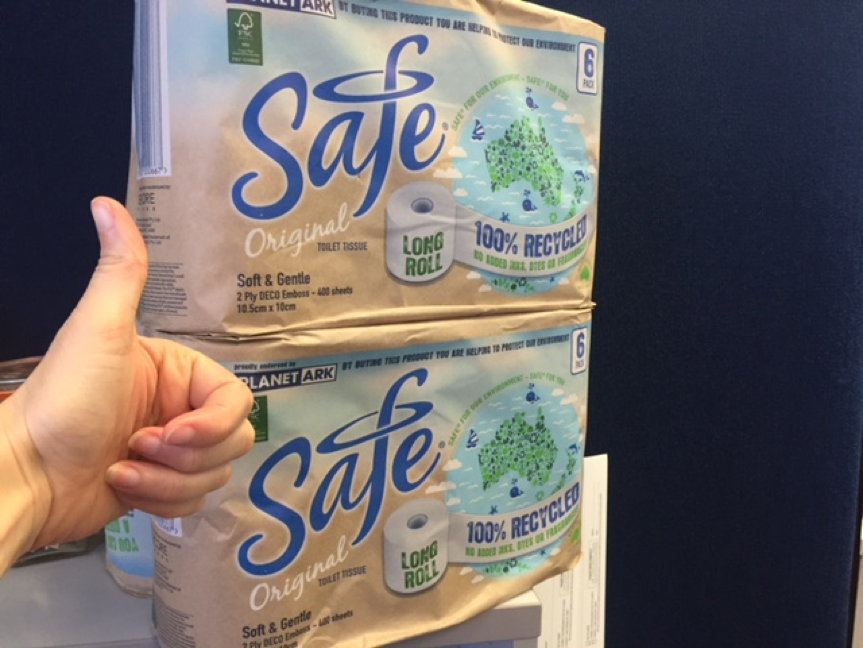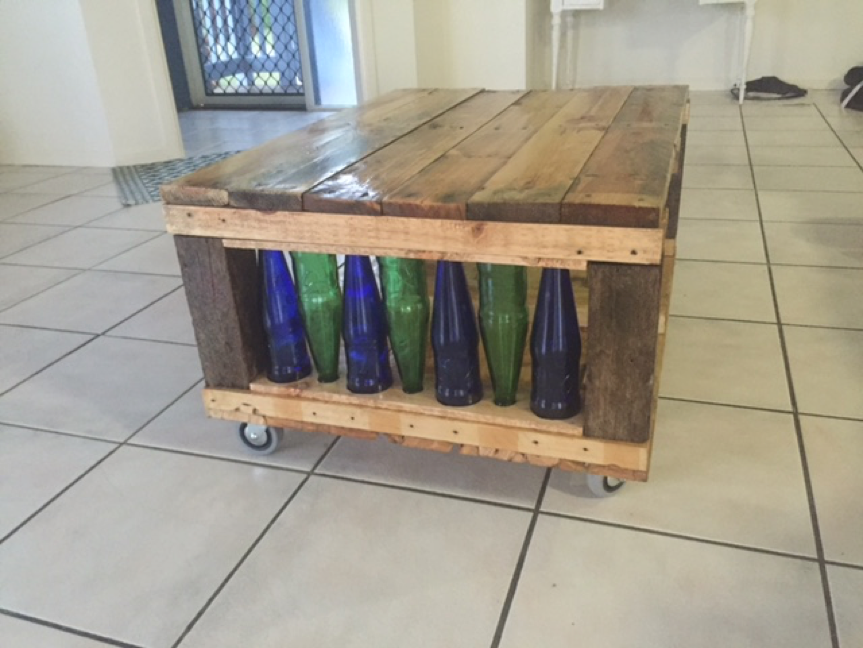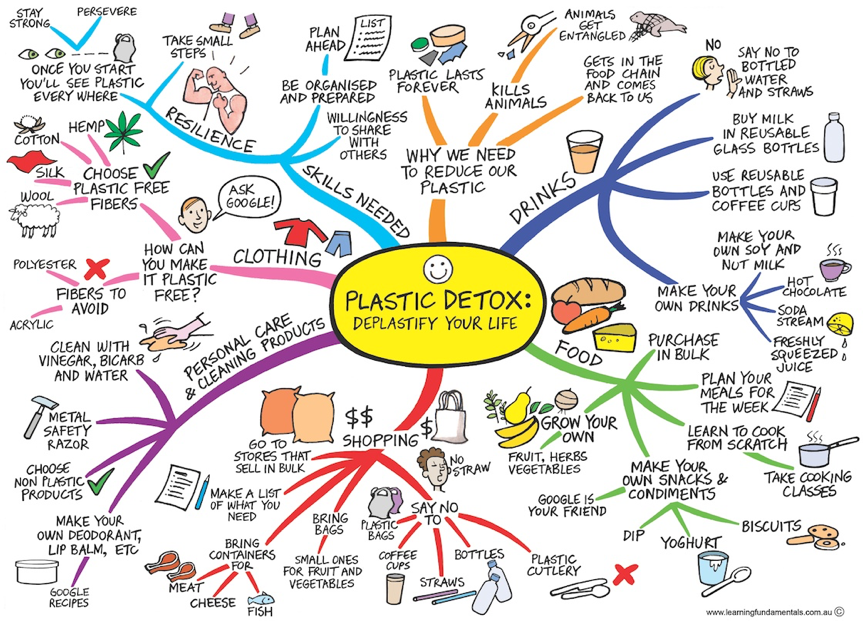– Charlie Morgan, Partnership Executive Officer
In July I embarked on a month-long challenge to reduce the amount of single-use plastic in my life for the Plastic Free July Challenge initiative which aims to raise awareness of the sheer amount of plastic present in our lives, and to encourage people to refuse single-use items (the top four being plastic bags, straws, coffee cups and dreaded water bottles).
In our beautiful Mackay-Whitsunday region it is more important than ever to avoid these types of plastics reaching our stunning waterways and marine environments.
Prior to undertaking the challenge I was already conscious of cutting down our household’s dependency on plastic generally; having undertaken monitoring on landfills in the past I know very well how fickle the life of a single use straw or supermarket carrier bag can be, and that’s assuming it makes it to the landfill in the first place. My partner and I have a beach hut near Ayr in the Burdekin region and every time we go we are reminded at just how much of a problem plastic debris can be. We always take home several big bags of plastic from the beachfront with us and it feels like we’re only making the smallest of differences each time.

Plastic bottle on a beach near Plantation Creek, Ayr. July 2016
Even a camping trip in the beautiful Whitsundays in July on our front door revealed a tide mark of plastic debris and reminded me how important this challenge is.

Plastic debris on North Molle Island, July 2016
We know from the results of our social survey in the HR2RP 2014 Pilot Report Card that residents of our region highly value the aesthetic beauty of our waterways and marine environments, and plastic certainly influences this.
During the challenge I took the next step from reducing and re-using plastic materials in our house to actually refusing single use plastic products in the first place and trying to identify ways we could reduce our dependency. The key to this process (for me) was about putting some (more) thought into everyday activities that might not usually require planning – such as going to get a coffee or doing your grocery shopping. I invested in a wonderful stainless steel drinking bottle that keeps liquids cool for many hours, meaning I wasn’t forced to buy any bottled water during the challenge, despite several domestic flights, all day meetings and long, hot car journeys. Coffees were ordered and drunk in a stainless steel mug.

Recycled toilet paper in paper packaging = double win
I found myself keeping a look out for products whilst shopping that were not pre-packaged. Fresh produce is exceptionally awful for this in some supermarkets (for example green beans being trayed then packaged, or individual squashes wrapped in plastic). The below example of recycled toilet paper was a double win for the environment, recycled paper being used to package the recycled paper (disclaimer – I have no shares in this company!).
I started making my own cleaning products out of bicarb and water with some essential oils added for a nice smell, thus cutting down at least 5 separate bottles of products into one multi-use product (much cheaper too!).
Getting into the spirit of it, my partner made us a coffee table out of discarded palettes and beer bottles, proving that sometimes recycling ‘worthless’ items (albeit not plastic in this case) can create something beautiful. I wish I had his carpentry skills. I ‘provided’ some of the empty beer bottles though.

Yes, we did have to drink those beers to create this masterpiece!
I think we are a long way from ending our relationship with single-use plastic however these small changes in the long-term do add up.
By 2050 it is estimated that there will be more plastic than fish in the world’s oceans. This challenge was something close to my heart and I have pledged to make it a (single use) plastic-free 2016 and continue to try and find ways to make old things into something amazing (stay tuned for the palette lounge-suite, dropping 2017). If you would like to know more about the initiative or would like some tips or tools to help your organisation or household cut down on your plastic use, head to the website here: (http://www.plasticfreejuly.org).

Deplastify your life! Some great ideas represented here
Charlie Morgan
Executive Officer



